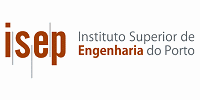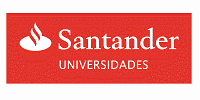Essentials of Learner-Centered Teaching
Workshop Description
There has been a recent call for a paradigm shift in undergraduate education from traditional (teacher-centric) methods to learner-centered practices. Learner-centered teaching requires students to be active and responsible participants in constructing their own learning and offers several benefits over traditional methods such as higher gains in learning, better long-term retention of concepts, and improved motivation for learning [1], [2], [3].
This workshop introduces the essentials of learner-centered teaching. We will begin with an exploration of learning styles and then introduce proven strategies to teach more effectively and to address a variety of learning styles. The learner-centric approaches presented in this workshop include active learning, cooperative learning, and inductive teaching methodologies.
Background on pedagogical research will be provided, but the workshop focuses mainly practical integration of these strategies into course/lecture planning and classroom delivery.
Workshop Objectives
At the end of the workshop, participants will be able to:
· Identify different learning styles among students· Design course activities to address different learning styles
· Introduce a variety of active learning strategies into lectures
· Use hands-on lab experiments, remote experiments and simulations in a guided discovery process.
During the workshop participants will work on redesigning a portion of their course to include the above strategies. Participants should therefore bring to the workshop course materials pertaining to one topic in a course.
Intended Audience
The workshop is appropriate for new and experienced faculty. Graduate students with some teaching experience are also encouraged to participate.
Workshop instructor
 Dr. Stephanie Farrell is an Associate Professor of Chemical Engineering at Rowan University (USA). She obtained her PhD in Chemical Engineering from New Jersey Institute of Technology in 1996. Prior to joining the faculty at Rowan in 1998, she was an Assistant Professor of Chemical Engineering and Adjunct Professor of Biomedical Engineering at Louisiana Tech University until 1998. As a pioneer of inductive teaching methodology in engineering courses, she has made significant contributions toward project-based learning and novel laboratory experiences to engage students in the scientific discovery process. Dr. Farrell has been recognized nationally and internationally for significant contributions to engineering education through her work in experiential learning and faculty development. In 2012 she was awarded Honoris Causa in Engineering Education from the Internationale Gesellschaft für Inginieurpädagogik. She has been honored by the American Society of Engineering Education (ASEE) with several teaching awards such as the 2004 National Outstanding Teaching Medal and the 2005 Quinn Award for experiential learning. With over a decade of experience in leading workshops domestically and internationally, she has conducted workshops on a variety of topics including effective teaching, inductive teaching methods, and the use of experiments and demonstrations to enhance learning. Dr. Farrell is the Vice President Member Affairs for ASEE, and she serves on the Executive Committee of the International Federation of Engineering Education Societies (IFEES).
Dr. Stephanie Farrell is an Associate Professor of Chemical Engineering at Rowan University (USA). She obtained her PhD in Chemical Engineering from New Jersey Institute of Technology in 1996. Prior to joining the faculty at Rowan in 1998, she was an Assistant Professor of Chemical Engineering and Adjunct Professor of Biomedical Engineering at Louisiana Tech University until 1998. As a pioneer of inductive teaching methodology in engineering courses, she has made significant contributions toward project-based learning and novel laboratory experiences to engage students in the scientific discovery process. Dr. Farrell has been recognized nationally and internationally for significant contributions to engineering education through her work in experiential learning and faculty development. In 2012 she was awarded Honoris Causa in Engineering Education from the Internationale Gesellschaft für Inginieurpädagogik. She has been honored by the American Society of Engineering Education (ASEE) with several teaching awards such as the 2004 National Outstanding Teaching Medal and the 2005 Quinn Award for experiential learning. With over a decade of experience in leading workshops domestically and internationally, she has conducted workshops on a variety of topics including effective teaching, inductive teaching methods, and the use of experiments and demonstrations to enhance learning. Dr. Farrell is the Vice President Member Affairs for ASEE, and she serves on the Executive Committee of the International Federation of Engineering Education Societies (IFEES).
[1]R. Hake, 1998, Interactive-engagement versus traditional methods: A six-thousand-student survey of mechanics test data for introductory physics courses, Am. J. Phys. 66: 64-74
[2]M. Prince, "Does Active Learning Work? A Review of the Research." J. Engr. Ed., 93(3), 223-231 (2004).
[3]Smith, K.A., S.D. Sheppard, D.W. Johnson, and R.T. Johnson, “Pedagogies of Engagement: Classroom-Based Practices,” J. Eng. Ed., 94(1), 87 (2005).



